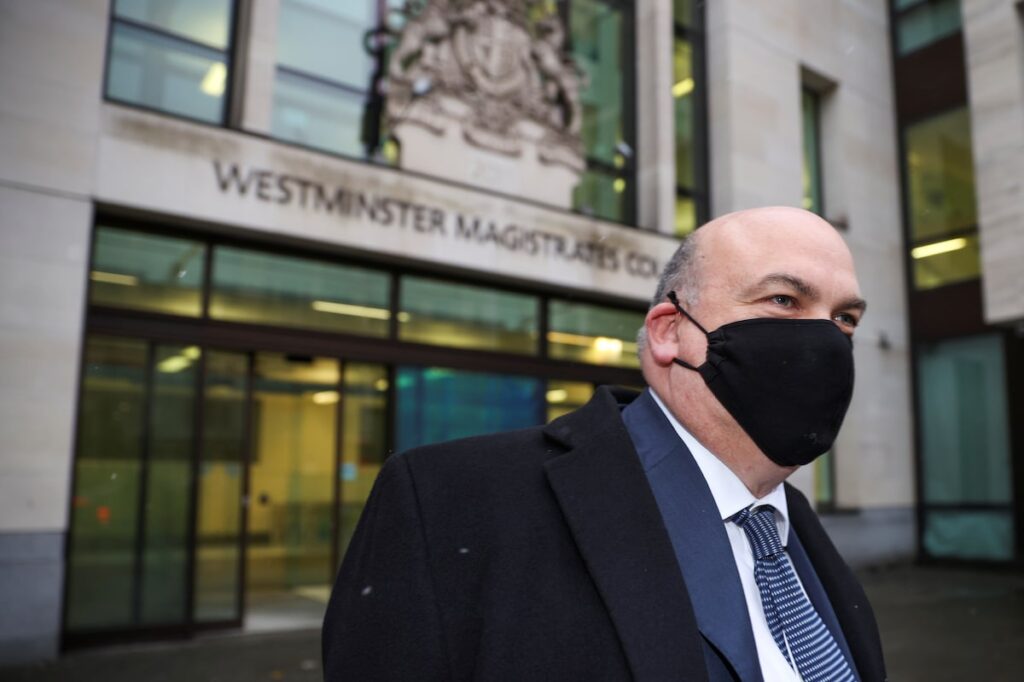Open this photo in gallery:
British entrepreneur Mike Lynch leaves Westminster Magistrates' Court in London on February 9, 2021. Hannah Mackay/Reuters
Mike Lynch, the tech founder once hailed as the British Steve Jobs, has denied wrongdoing in his fraud trial connected to Hewlett-Packard's 2011 acquisition of his software company for $11 billion.
Under questioning from his lawyer, Christopher Morbillo, Lynch said he was not involved in transactions that prosecutors say amounted to a massive accounting fraud at Autonomy, a company he co-founded.
In 2012, HP wrote down the value of Autonomy by $8.8 billion after discovering significant accounting irregularities.
Lynch took the stand for the first time in the San Francisco trial on Thursday, telling jurors that others handled accounting and that he focused on Autonomy's technology and marketing.
The tech entrepreneur defended his company, saying Autonomy wasn't perfect and, in hindsight, there were things it could have done better, but it was still a profitable business.
“I think Autonomy was a very successful company. From a financial standpoint, it was very profitable,” Lynch said.
The testimony marks a pivotal moment for Lynch, who has been embroiled in a legal battle since the sale collapsed and could face prison time if convicted.
Lynch and Autonomy's former financial executive, Stephen Chamberlain, are charged with fraud and conspiracy for allegedly conspiring to inflate the company's revenue beginning in 2009 in order to attract a buyer.
Prosecutors allege the two inflated Autonomy's finances through backdated contracts and “round-trip” transactions, in which they advanced cash to customers through sham contracts.
In the trial, which began in mid-March, jurors heard testimony from more than 30 government witnesses, including former HP CEO Leo Apotheker, who was fired just weeks after the Autonomy deal was announced.
Lynch's lawyers argued at trial that HP was so eager to acquire Autonomy and shut out potential competitors that it rushed through its pre-sale due diligence.
In opening statements, Lynch's lawyers said the Cambridge-educated entrepreneur had focused on technology issues and left financial matters to Autonomy's then-Chief Financial Officer, Sushovan Hussain.
Hussein was released from a U.S. prison in January after serving a five-year sentence for a separate conviction in the same court in 2018.
Lynch was one of Britain's leading technology entrepreneurs, and was compared to Apple co-founder Steve Jobs and Microsoft co-founder Bill Gates.
The Autonomy deal was one of Britain's biggest tech deals at the time and was meant to revitalize HP's software business. But it spawned a series of bitter and expensive legal battles. HP largely won a civil lawsuit against Lynch and Hussain in London in 2022, but damages have yet to be determined. The company is seeking $4 billion.
Lynch was on the stand for 20 days during that trial.
Lynch said HP doesn't know what it's doing with Autonomy and doesn't yet understand his technology.



